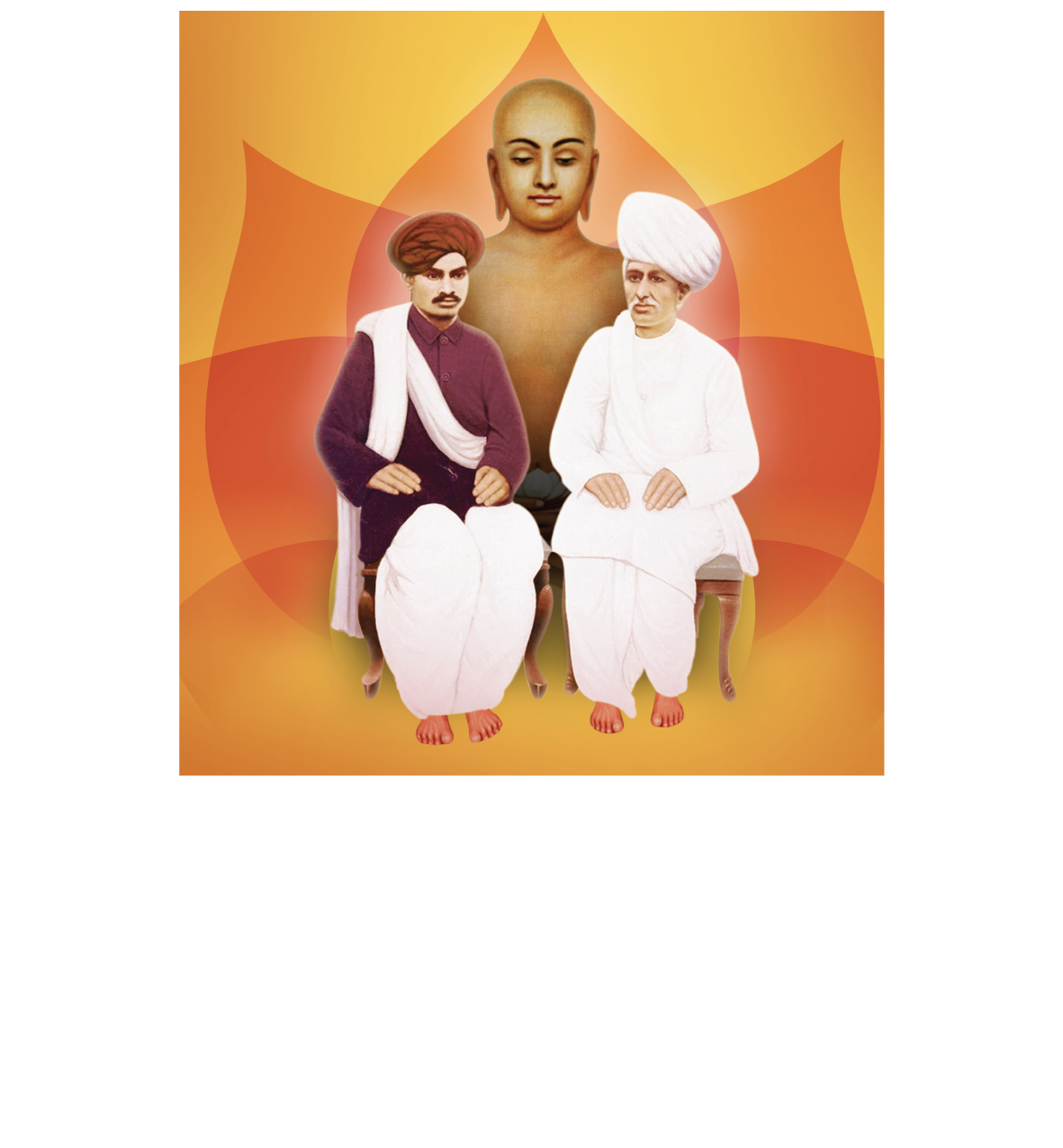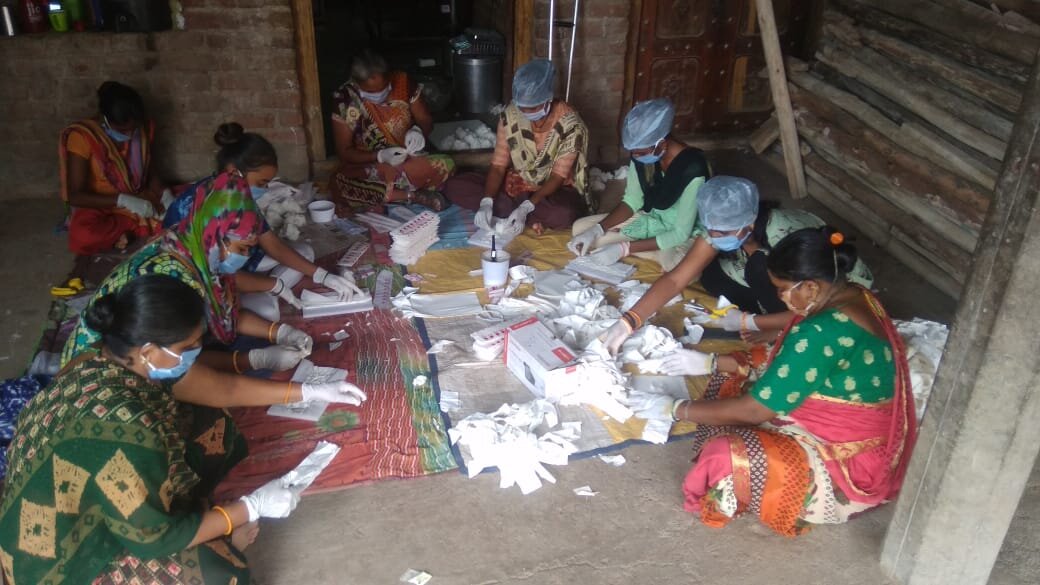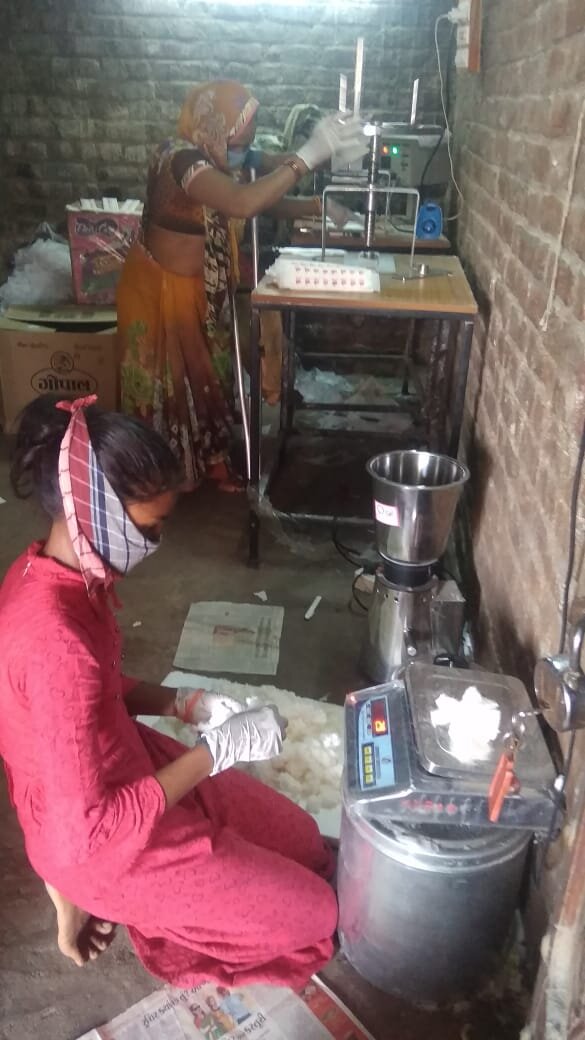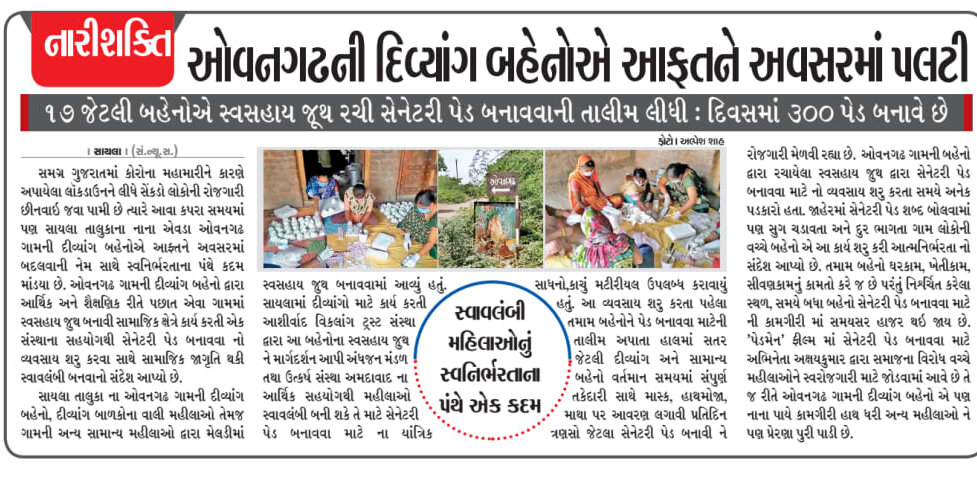Women entrepreneurs from Sayla Taluka (block) have overcome the challenges of the COVID-19 pandemic to fulfill an essential community health need and march toward economic independence
With most of society under lockdown owing to the ongoing pandemic of COVID-19, the livelihood of many has been snatched away, especially in labour-intensive and service-based sectors. Rural areas in the country have very limited jobs that can be done remotely. Furthermore, those with more basic education or disabilities have been hit especially hard by the restrictions imposed upon us for public health and safety.
The Ashirwad Trust for the Disabled, operated by Shree Raj Saubhag Satsang Mandal, has been hard at work to find opportunities for disabled residents of Sayla Taluka to earn money and support their families. One story of success and hope in these unprecedented times is a Self Help Group (SHG), comprised of 17 enterprising women from Ovangadh village in Sayla Taluka, that has found a way to turn this obstacle into an opportunity and carved a path to financial independence.
The SHG comprises of disabled women, mothers of disabled children as well as able-bodied women, working to support their families by locally manufacturing sanitary pads. Multiple humanitarian organisations have come together to help these women establish themselves as stable earners for their families. Under the guidance of the Ashirwad Trust for the Disabled and with support from the Blind Peoples Association, the women are using manufacturing equipment and raw materials donated by the Utkarsh Sanstha, Ahmedabad to manufacture 300 - 400 sanitary pads every day. In keeping with the public health guidelines, they wear personal protective equipment like masks and gloves. Not surprisingly, this small-scale, local operation, makes and sells these pads at prices lower than products available in the retail market.
The women received training in using the equipment. They were also made aware of the benefits of sanitary pads as well as creating a SHG, which typically has a co-operative model of handling finances and resources in order to share responsibility, allowing the group to address the urgent needs of individual members through tools like loans and has a regulatory structure to collectively monitor and manage problems with repayments.
The women faced several obstacles in establishing this SHG and starting their business; primarily from the stigma and secretive attitude that exists in society toward menstruation and menstrual products. They persisted in the face of disgust and aversion among fellow villagers to not only set up their business but also fulfill an essential public health need in their community. Moreover, these women are also handling other responsibilities at home, on farms, etc. and yet, they make sure to arrive at their workplace at the designated time and diligently work on making the sanitary pads.
The success of this operation has been covered by several media outlets:
Source: Sandesh, July 21, 2020
K-News Gujarati Clip:
https://www.facebook.com/112855345492664/posts/3014646821980154/
Source: K-News Gujarati, July 21, 2020
DD Girnar News Clip
https://www.facebook.com/112855345492664/posts/3111781748933327/
Source: DD Girnar, August 1, 2020)
Empowered women who contribute to the financial health of their households and understand the immense social benefits of making affordable sanitary pads easily available to girls and women in their community are sure to improve the prospects of their families as well as their communities. The Ashirward Center is proud to have supported these women in their journey toward self-sufficiency and economic independence. We are in awe of their spirit and are confident that their success and dedication will be a source of inspiration for others who are facing unforeseen obstacles as a result of the ongoing pandemic.







